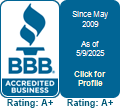
Completing the search for your first home is an exhilarating experience. You’re probably juggling numerous details about making the right choice. We believe that gaining insight into your potential new HVAC system is essential. The property’s HVAC system represents a significant investment and potential source of long-term costs, so being thorough is important for first-time homebuyers.
In the following guide, we’ll outline seven tips for learning everything you can about a home’s heating and cooling setup. And if you want a deeper opinion from the experts, don't hesitate to contact Select Comfort Systems. Our experienced team can help you compare your options with industry insights that are second to none.
1. What HVAC System Are You Working With?
Start by clarifying what type of HVAC system the home includes. Furnaces tend to last longer compared to air conditioners, and relatively new types of HVAC products like heat pumps boast average life spans that are even longer. Tracking down the make and specific model gives you a clear idea of how much routine maintenance it might need.
2. How Long Ago Was the System Installed?
It’s just as smart to learn how old the HVAC system is when you're looking at a new home. In general, HVAC systems should survive for around 10-12 years. Learning its approximate installation date helps you prepare for any needed servicing or considerations if it might shut down for good. Older systems are at a higher risk of problems, so fiscal planning for a replacement unit might be needed faster than expected.
3. Is the Warranty Still in Effect?
Check if the HVAC system is still under warranty. If it is, that's great news because it can lighten the load for maintenance expenses. HVAC warranties should take care of parts and labor, but specifics will vary. Make sure you go over any terms that seem confusing to ensure you understand your coverage and any possible out-of-pocket costs.
4. When Was the Last Time It Received Maintenance?
Take a close look at the maintenance history of the HVAC system, if that information is accessible. This kind of information can demonstrate if there have been regular problems or how often maintenance is performed. Inquire about key tasks such as changing the air filter, which is a positive sign indicating regularly scheduled tune-ups.
5. Are You Aware of the System’s Energy Efficiency Ratings?
Finding a home that features an HVAC system with high energy efficiency isn’t just smart; it leads to lower utility bills and less of an impact on the environment. Try and find the seasonal energy efficiency ratio (SEER) ratings for air conditioning and the annual fuel utilization efficiency (AFUE) for furnaces. The higher the SEER rating, the more efficient the cooling over the whole season, while high AFUE ratings mean the fuel is more effectively burned for useable heat.
6. Have You Noticed Signs of Problems After Your Own Inspection?
Even without heating and cooling expertise, it's still a good idea to check out the HVAC system on your own. Watch closely for potential issues that haven't been mentioned by the seller. This might consist of odd sounds, unequal airflow and attempts to cover up any visible damage.
7. Have You Sought Out Expert Advice?
If you're still hesitant to make an offer because of the current state of the HVAC system, it's wise to get an assessment and recommendation from certified HVAC professionals. They can spot things you might not, such as refrigerant leaks, bad electrical connections or damaged ductwork.
A Consultation with Select Comfort Systems Simplifies Your Home-Buying Journey
Finding your first home ought to be exciting, and Select Comfort Systems can ensure it stays that way. Reach out with us at 801-305-4777. We can discuss how our HVAC services give you peace of mind, giving you what you need to step into your new home with confidence.

